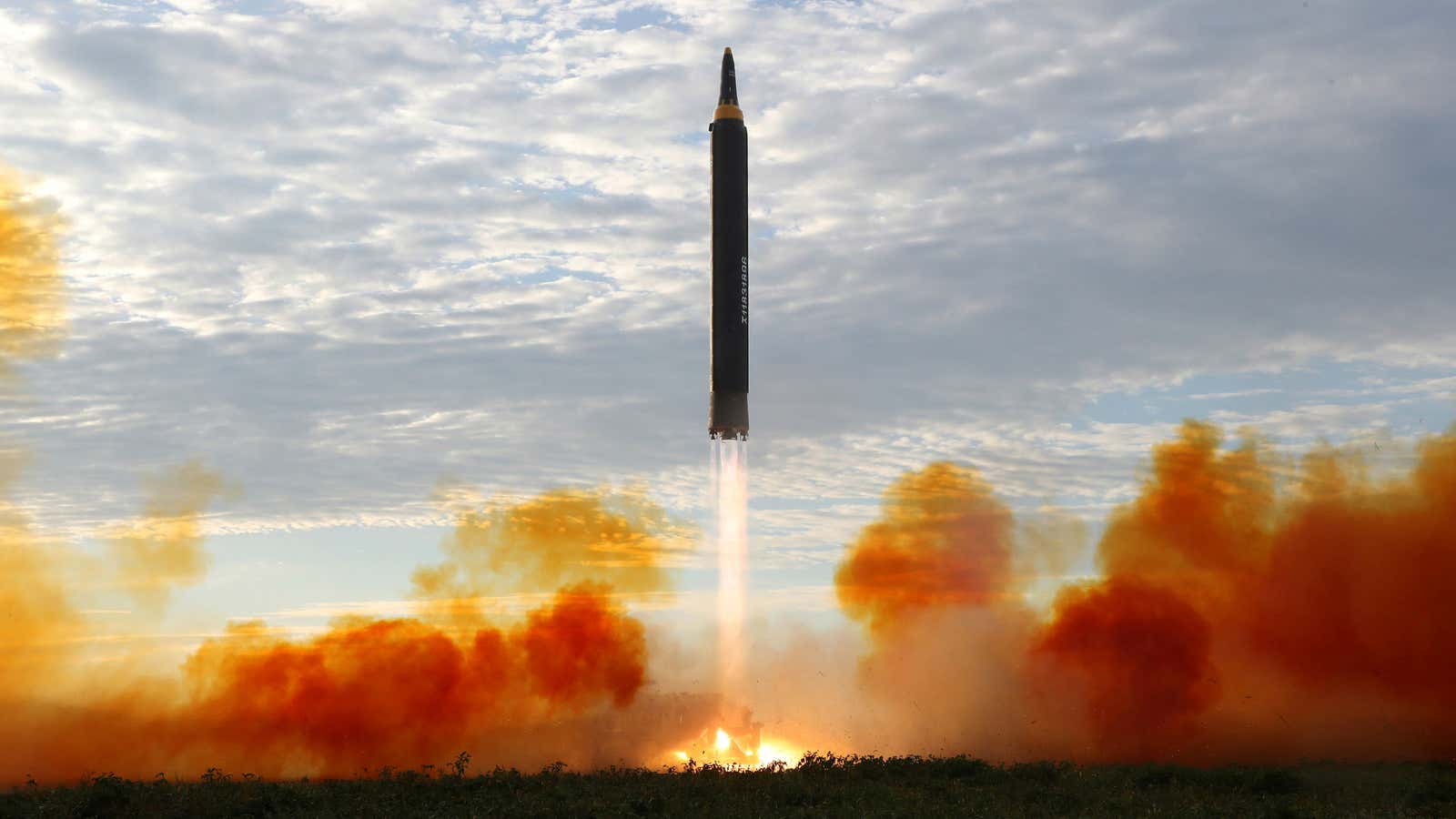After decades of playing catch-up, the African Union (AU) is doubling down on plans to join the global space race.
The AU passed legislation to establish the African Space Agency in 2017 and has just approved Egypt as host country for the headquarters of the new agency.
Egypt’s bid to host the agency topped similar proposals from Nigeria and Ethiopia (already home to a multimillion-dollar space observatory and research center.) A late bid by Ghana was not considered while the Namibia withdrew its bid from consideration.
One of the AU’s objectives for the space agency is minimizing the ”duplication of resources and efforts” and, in turn, maximizing “the benefits of current and planned space activities,” according to the draft statute establishing the agency. Put another way, countries across the continent (including several whose ambitions for individual space programs have long been hamstrung by economics) will collaborate and share potential benefits.
The launch of the African Space Agency comes at a time when it’s easier than ever before to launch space programs as advances in innovation have seen satellites become smaller and more affordable. That effect has been clear over the past year: Kenya launched a satellite last May and Ethiopia has a launch scheduled for September this year.
The agency’s draft statute states that one of the agency’s objectives is strengthening “space missions on the continent in order to ensure optimal access to space-derived data, information, services and products.”
Such broad access could potentially improve agriculture, guard against deforestation and improve disaster planning—all major benefits given Africa’s increased vulnerability to the impact of climate change compared to other continents.
In the past, the AU has looked to shore up its deficit of space data through collaboration with the European Commission’s Copernicus program—the world’s third largest satellite data provider. The partnership allows African scientists access data, ranging from digital aerial photography, topography, vegetation changes to weather patterns, for free.
Sign up to the Quartz Africa Weekly Brief here for news and analysis on African business, tech and innovation in your inbox
